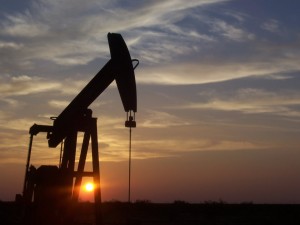
(AFP Photo)
A group of NGOs have announced their opposition to a proposed loan from the European Bank for Reconstruction and Development (EBRD) to fund oil drilling projects in Egypt.
The EBRD is expected to decide on Wednesday whether or not it will provide a $40m loan to Kuwait Energy, according to a statement published by a coalition of NGOs including the Egyptian Centre for Economic and Social Rights, the Egyptian Initiative for Personal Rights and European groups CEE Bankwatch and Platform.
Kuwait Energy intends to use the money to help fund a project which will drill in five different areas in Egypt, said the NGOs. According to the coalition statement these areas include ” the edge of the Red Sea, in Upper Egypt on the border with Sudan and in the desert near Marina on the North Coast”.
They urged the EBRD “to reject the loan, or at least postpone its decision”.
The coalition prepared a briefing “warning the EBRD not to finance Kuwait Energy”. The briefing claims that EBRD “failed to properly identify the beneficiary of the loan, or the country where it is incorporated”. The coalition claims that Kuwait energy is incorporated in the United Kingdom island of Jersey, which is a known tax haven.
The briefing claims “the fossil fuel nature of Kuwait Energy’s drilling will fail to improve developmental or social justice in Egypt”. The coalition added that “while the EBRD claims to prioritise renewable energy, the reality shows a commitment to further oil and gas extraction”.
The NGO’s briefing highlights that the “loan is presented as a means to reduce heavily polluting gas flaring”. The coalition does not believe that this is “used to disguise a loan essentially geared towards general oil extraction operations”.
The coalition believes that EBRD’s plan of “accelerated privitisation” for Egypt “would increase poverty and inequality, while weakening both social justice and democracy”. It claims the “EBRD aims to expand Mubarak-era policies of economic neo-liberalism, which is described as a ‘success story’ despite the rampant corruption”.
The EBRD funds projects around the world, which are “tailored to the needs of the client and to the specific situation of the country”, according to its website. The EBRD could not be reached for comment.
Kuwait Energy is an oil and gas exploration and production company currently operating in nine different countries, including Egypt. Kuwait Energy’s first contract in Egypt began in December 1996 and there are currently five projects in Egypt; four in the Western Desert and one in the Eastern Desert.







